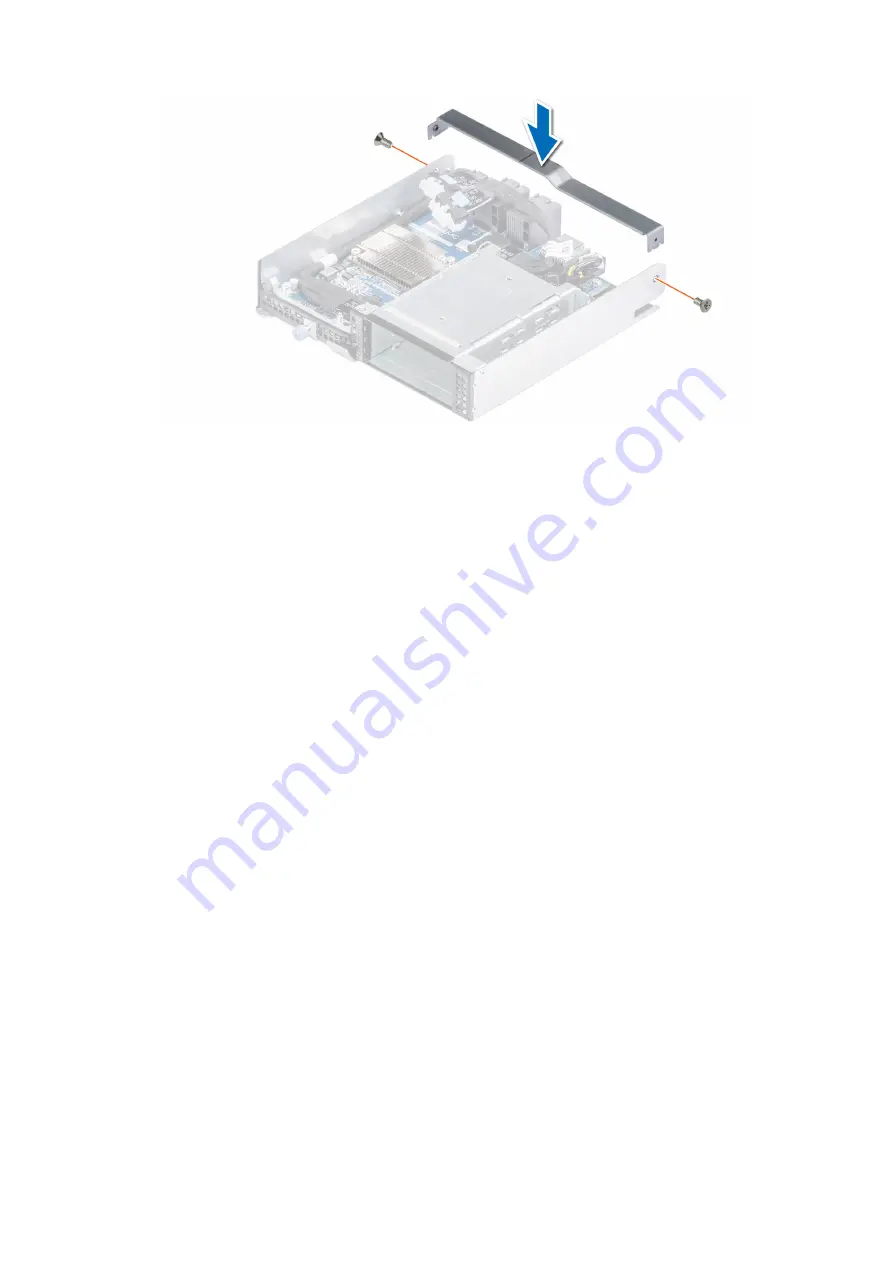
Figure 36. Installing the bracket
Next steps
1. Connect all the the cables to the expander board.
2.
.
3.
install the 2.5-inch HDD backplane
.
4. If applicable,
5.
.
6. Follow the procedure listed in
After working inside the system
.
System cover
Removing the front system cover
Prerequisites
1. Follow the safety guidelines listed in the
.
Steps
1. Slide the two latches.
2. Lift the front cover.
40
Installing and removing enclosure components
















































